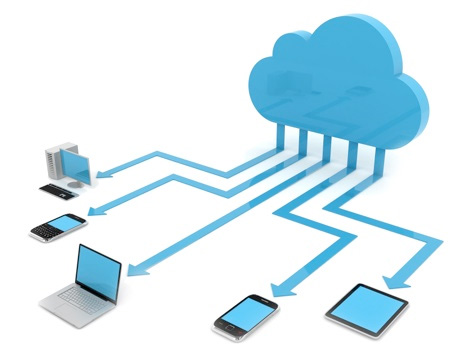The Benefits Of Cloud-Based Legal Case Management Systems
Imagine a bustling law firm with multiple attorneys handling diverse cases, from complex litigation to routine legal matters. The firm’s administrative team needs help to keep up with the ever-increasing paperwork, case files, and client communication, leading to disorganization and potential errors. Moreover, they face challenges ensuring data security and collaborating effectively across different departments. That is why Cloud-Based Legal Case Management Systems are important these days.
Table of Contents
In such a scenario, implementing management systems like PracticePanther’s case management software could be the game-changer that revolutionizes the firm’s legal operations. By harnessing the power of cloud technology, these solutions offer a comprehensive and streamlined approach to legal case management, bringing forth a host of benefits that can transform how the firm handles its daily tasks.
In this blog, we will explore the world of cloud-based legal case management systems and the remarkable advantages they offer for law firms. From secure data storage and easy collaboration to seamless scalability and cost-effectiveness. So, we will uncover the key features that make cloud-based case management systems indispensable for modern legal practices.
What is a Cloud-Based Legal Case Management System?
A cloud-based legal case management system is a powerful software application designed to optimize case management for lawyers, law firms, corporate legal departments, and courtrooms. It empowers these entities to manage their cases from any location securely and efficiently. With the ability to store case-related documents and track crucial deadlines, the system enhances the organization and accessibility of information. Moreover, real-time collaboration features enable seamless communication and cooperation among team members and clients worldwide. Thus, fostering efficiency and effectiveness in handling legal matters.

What is the use of case management system?
What is client case management system?
Benefits of Using a Cloud-Based System
There are several benefits associated with using a cloud-based legal case management system.

Enhanced Security:
Cloud environments provide advanced security measures like encryption technology and multi-factor authentication, safeguarding data from unauthorized access and potential losses due to cyber threats. The redundancy of servers ensures data remains secure even if one server fails or faces compromise, offering added peace of mind.
Improved Scalability. Unlike traditional onsite systems, cloud solutions enable easy, cost-effective scaling to meet changing demands. Organizations can quickly add capacity without hefty upfront investments. Hence, allowing them to adjust swiftly during peak workloads or expansion periods without compromising performance.
Cost Savings:
Cloud-based solutions eliminate the need for large upfront hardware. Or software investments and reduce ongoing maintenance costs. Pay-as-you-go pricing ensures budget flexibility. Thus, allowing law firms to optimize expenses while enjoying the latest features available within the platform.
Increased Productivity. Centralized cloud databases enable geographically dispersed teams to access shared information quickly. So, this is saving time searching through disparate files or dealing with data duplication. This heightened efficiency improves customer service, faster case resolutions, and overall client satisfaction.
Comprehensive Reporting Capabilities:
Cloud-based systems offer robust reporting features that provide valuable insights into key performance indicators, empowering law firms to make informed decisions, identify trends, and optimize resource allocation for maximum ROI. Customizable reports allow for tailored data analysis based on specific business needs.
Streamlined Collaboration Processes. Cloud systems facilitate seamless collaboration among stakeholders involved in each case, whether attorneys from different offices or remote clients. Virtual teaming, secure document sharing, and video conferencing tools accelerate case resolution, enhance communication, and foster teamwork.
Automated Workflows & Task Tracking.
Some cloud-based providers offer computerized workflows that enable easy monitoring of assigned tasks within projects or cases. By automating repetitive tasks and setting up notifications for critical milestones, law firms can reduce human errors associated with manual tracking and further boost overall efficiency and productivity.
Enhanced Data Backup and Recovery.
Cloud-based legal case management systems typically provide automated data backups and robust disaster recovery capabilities. This ensures that critical case information is regularly backed up and securely stored offsite. Hence, protecting against data loss in the event of hardware failures or unforeseen incidents. With reliable data backup and recovery, law firms can rest assured that their case data is safe and accessible despite unexpected challenges.
Effect on the Practice of Law
The following are some ways that cloud-based legal case management systems are changing the legal industry:
Enhanced Productivity. Attorneys may do more work with more efficiency, which relieves them of administrative responsibilities and frees them up to concentrate on legal matters.
Better Client Service. Attorneys that have instant access to case material may provide their clients updates right away, which will increase client satisfaction.
Remote Work Capabilities. As seen by the current surge in remote work, being able to work from any location has become essential. Cloud-based technologies simplify and safeguard distant legal practice.
Competitive Advantage. By adopting cloud-based technologies, legal practices may become more responsive, economical, and capable of offering first-rate services, giving them a competitive advantage.
Conclusion on Cloud-Based Legal Case Management Systems
In conclusion, adopting cloud-based legal case management systems has become a game-changer for the legal industry. With benefits ranging from enhanced security to streamlined collaboration and automated workflows, these modern solutions offer a clear advantage over traditional on-premise systems. With the cost savings and increased productivity, the ability to access critical case information from anywhere at any time has made cloud-based case management a must-have for law firms of all sizes. As more and more legal professionals recognize the value of these innovative technologies, the transition towards leveraging the latest advancements in the digital realm will continue to reshape and optimize the way legal practices operate.

Ananya Prisha is an enterprise level Agile coach working out of Hyderabad (India) and also founder of High Level PM Consultancy. Her goal has been to keep on learning and at the same time give back to the community that has given her so much.










